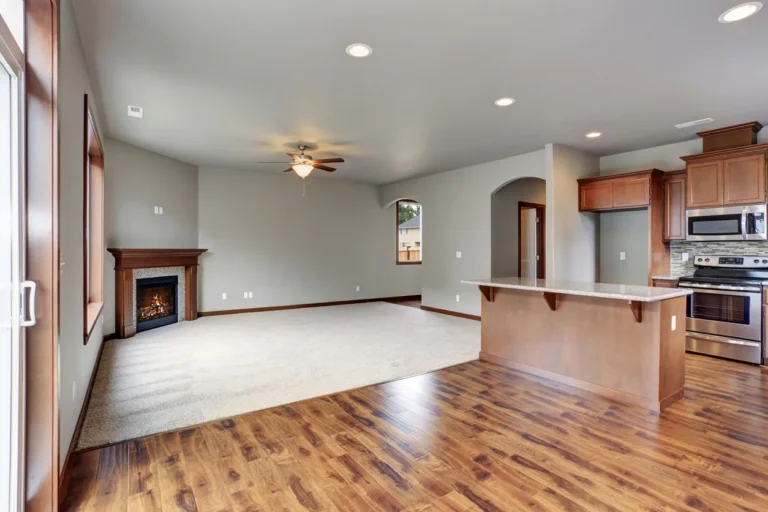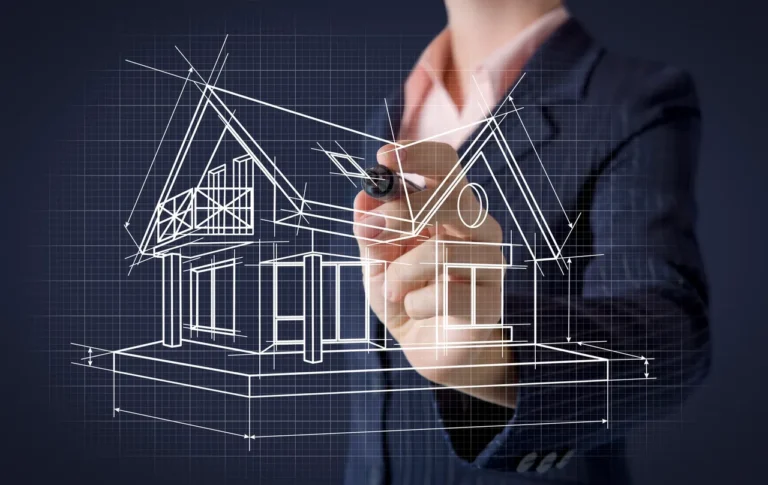Introduction to Annual Inspections
In property management, annual inspections play a pivotal role in maintaining the integrity of rental properties. These inspections are not just about complying with lease agreements but are essential for spotting potential issues early, ensuring tenant satisfaction, and preserving the property’s long-term value. An annual inspection provides a chance to detect small problems before they turn into costly repairs or tenant disputes.
Whether you’re managing an apartment complex, single-family homes, or multi-unit properties, creating and following a property management is critical. These inspections help identify maintenance issues, ensure compliance with the lease terms, and keep both landlords and tenants informed about the condition of the property.
Why Conduct Annual Inspections?
Conducting annual inspections of rental properties offers a variety of benefits, both for property managers and tenants. Below are some key reasons why these inspections should be a regular part of property management:
- Identify Small Issues Early: Small issues, if left unaddressed, can escalate into major problems. For example, a minor plumbing leak can cause significant water damage over time. An HVAC system that’s not functioning optimally can lead to higher energy costs and system failure. Regular inspections allow property managers to spot these problems before they cause real damage.
- Tenant Compliance: Inspections provide an opportunity to ensure tenants are adhering to the lease agreement. This includes confirming that tenants aren’t causing any damage to the property, that the premises are clean and well-maintained, and that there are no unauthorized alterations.
- Value Preservation: Regular inspections help ensure that the property remains in good condition, which preserves its value over time. Identifying maintenance issues early—such as leaks, electrical problems, or appliance malfunctions—helps prevent costly repairs in the future.
Pre-Inspection Preparation
Preparation is crucial to ensure that the inspection is thorough, efficient, and respectful of tenant privacy. The following steps can help you prepare:
- Notify Tenants: As per legal requirements in most jurisdictions, tenants must be notified before an inspection. Typically, at least 24 to 48 hours’ notice is required. Send a written notice detailing the time, date, and purpose of the inspection, and offer tenants a chance to reschedule if needed. This demonstrates respect for their privacy and ensures legal compliance.
- Review Past Reports: Reviewing past inspection reports will give you insight into previous issues that were addressed or remain unresolved. If there were areas that needed repair during last year’s inspection, make sure to check those again to confirm if the issues were properly fixed.
- Use Digital Tools: There are several property management tools and apps that allow property managers to create digital checklists, store photos, and track issues. Using these tools ensures that everything is documented and can be easily accessed when needed. These tools can also help with communication with tenants and contractors for any necessary repairs.
Key Areas to Inspect
Annual inspections should cover both interior and exterior areas of the property. This thorough approach ensures that all aspects of the property are maintained properly and that no detail is overlooked.
Interior Areas
The interior inspection focuses on ensuring that the living space is safe, functional, and clean. Here are the key areas to check:
- Plumbing: Check all faucets, toilets, pipes, and drains for leaks or water damage. Look under sinks and around toilets for any signs of mildew, mold, or water pooling. Leaks can cause significant damage if not addressed promptly.
- Electrical Systems: Inspect all electrical outlets, switches, and light fixtures. Look for exposed wiring, malfunctioning outlets, or any signs of electrical hazards. Ensure that circuit breakers are in good condition and that there are no signs of electrical overheating, which could pose a fire risk.
- Appliances: Test all major appliances, such as the stove, refrigerator, oven, dishwasher, and washing machine. Check for any signs of wear and tear and ensure they are operating at full capacity. If appliances are reaching the end of their useful life, consider replacing them to prevent unexpected failures.
- Flooring: Inspect carpets, tiles, hardwood floors, and other types of flooring for damage or excessive wear. Ensure that there are no significant stains, cracks, or holes. Floors are often one of the first places to show signs of wear in rental units, so maintaining them is key to keeping the property in good condition.
- Smoke Detectors: Ensure that smoke detectors and carbon monoxide detectors are installed and in working condition. Replace batteries at least once a year, and test alarms to make sure they are functioning properly. These are critical safety devices, and regular testing is essential.
- HVAC Systems: Inspect heating, ventilation, and air conditioning (HVAC) systems. Ensure that filters are clean, ducts are free of obstructions, and the unit is operating efficiently. HVAC systems that aren’t regularly maintained can lead to increased energy bills and can break down unexpectedly.
Exterior Areas
The exterior of the property is just as important to inspect as the interior. The following are key areas to check:
- Roofing: Inspect the roof for missing or damaged shingles, sagging, or signs of leaks. If the roof has been damaged by weather, repairs should be made quickly to avoid water damage inside the property.
- Gutters: Clean gutters and downspouts to ensure that rainwater is being properly channeled away from the property. Blocked gutters can lead to water damage to the foundation, so it’s important to keep them clear of debris.
- Landscaping: Examine the lawn, trees, and bushes around the property. Overgrown vegetation can cause drainage issues or damage to the property’s exterior. Trim bushes and trees, and ensure the lawn is well-maintained.
- Windows and Doors: Inspect windows and doors for any signs of damage, such as broken locks, cracked glass, or poor sealing. Proper insulation and security are key to maintaining energy efficiency and safety.
- Driveways and Walkways: Check for cracks, potholes, or uneven surfaces. Unsafe walkways can be a liability, so it’s important to repair any damage promptly to avoid tenant injury.
Common Issues and How to Address Them
Property managers often come across common issues during annual inspections. Here’s how to address some of the most frequently encountered problems:
- Worn Appliances: As appliances age, they can become inefficient or stop working altogether. Conduct regular inspections to check for signs of wear and replace any appliances that are near the end of their lifespan. This will improve tenant satisfaction and reduce unexpected repair costs.
- Leaks: Plumbing leaks are common, especially in older properties. A leaky faucet, pipe, or toilet can lead to significant water damage if not addressed quickly. Be proactive and fix leaks as soon as they’re identified to prevent expensive water damage.
- HVAC Inefficiencies: An inefficient HVAC system can cause energy bills to skyrocket. Regularly clean and replace HVAC filters, inspect ducts for blockages, and maintain the system to keep it running efficiently. Schedule servicing for older units to prolong their lifespan.
- Pest Infestations: Pests like rodents, cockroaches, and termites can cause damage to the property and create health risks. Inspect for signs of infestation during the annual inspection and address any issues immediately by contacting a pest control professional.
Documentation and Reporting
Proper documentation is critical when conducting inspections. Here’s how to ensure that your inspection process is well-documented:
- Photos/Videos: Take clear photos or videos of any issues found during the inspection. This documentation will be valuable if there are disputes with tenants or if issues arise in the future. It’s also a good way to track the condition of the property year over year.
- Cloud-Based Storage: Store all inspection reports, photos, and videos in cloud-based storage so that they are easily accessible and secure. Cloud storage allows you to track repairs, maintenance, and follow-ups, and ensures that everything is organized for future reference.
- Actionable Reports: After completing the inspection, create a detailed report outlining findings and recommendations. This should be shared with tenants (if necessary) and contractors for follow-up. Make sure the report is clear, concise, and actionable.
Tenant Collaboration During Inspections
Tenant collaboration is key to maintaining good relations and ensuring inspections run smoothly:
- Educate Tenants: Use inspections as an opportunity to educate tenants on their responsibilities, such as reporting maintenance issues, maintaining appliances, and keeping the property clean.
- Communicate: Let tenants know why inspections are important and how they benefit both parties. Highlight that inspections help maintain the property and ensure a safe living environment.
- Address Concerns: Tenants may have concerns or requests during the inspection. Be sure to listen and address their needs or questions professionally. This fosters a positive relationship and keeps tenants engaged.
Innovations in Inspection Management
Technology is changing the way property managers conduct inspections:
- Cloud-Based Integration: Cloud tools like inspection software can integrate with your property management system, making it easier to track maintenance history, generate reports, and manage repair work.
- Digital Inspection Tools: Mobile apps and inspection tools are making it easier for property managers to complete inspections and track issues. These tools allow you to generate reports instantly and store all information in one place.
- AI-Based Predictive Maintenance: AI-powered systems can predict when appliances or systems are likely to fail. This predictive maintenance allows property managers to fix issues before they occur, saving money and reducing downtime.
Legal and Ethical Considerations
When conducting inspections, it’s essential to comply with all legal and ethical guidelines:
- Privacy Laws: Always respect tenant privacy rights. Provide proper notice before entering the unit and ensure that the inspection is conducted during reasonable hours.
- Proper Notification Practices: Follow your local jurisdiction’s rules regarding the amount of notice required before conducting an inspection. Typically, this is 24 to 48 hours in advance.
- Ethical Handling: Conduct inspections with professionalism, ensuring tenants feel respected. If any issues are found, address them in a way that is fair and transparent.
Annual Checklist Template
To help streamline your inspections, we’ve included a sample checklist you can download and use during your next property inspection.
Interior Checklist:
- Plumbing: Check faucets, toilets, drains, and under-sink areas
- Electrical Systems: Inspect outlets, wiring, and circuit breakers
- Appliances: Test stove, refrigerator, dishwasher, and washing machine
- Flooring: Check for damage or wear in carpets, tiles, and hardwood floors
- Smoke Detectors: Test and replace batteries
- HVAC: Clean filters, inspect ducts and vents
Exterior Checklist:
- Roof: Inspect for missing shingles or leaks
- Gutters: Ensure gutters are clean and draining properly
- Landscaping: Trim overgrown bushes and trees, check for drainage issues
Download the Full Property Management Here!
Conclusion
Annual inspections are essential for maintaining rental properties and ensuring tenant satisfaction. Regular inspections allow property managers to identify issues early, prevent costly repairs, and maintain the value of the property. By following a property management annual inspection checklist, documenting findings thoroughly, and collaborating with tenants, you can maintain a well-managed property that both tenants and landlords will appreciate.
Ready to streamline your inspections? Contact us for more tips or assistance!
Turn Your Passion for Property Management Into Profit
Join our franchising program and learn how to become a successful property manager. We provide all the training and support you need to build your business. Learn More About Franchising Opportunities and take the first step today!
Let us handle the day-to-day operations while you enjoy hassle-free ownership. From tenant relations to maintenance, we’ve got it covered. Contact Us! Today to learn more about our property management services!





